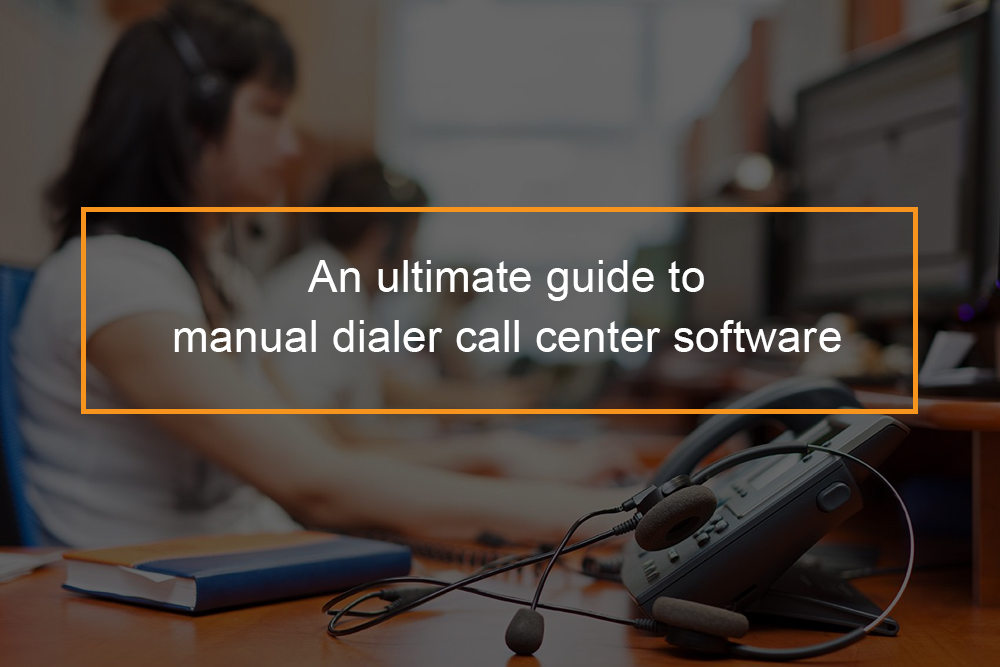How does a business benefit from VoIP?
 The advantages a business enjoying from using the VoIP technology include:
The advantages a business enjoying from using the VoIP technology include:
- Lower costs
- Advanced features for small and large teams
- Increased accessibility
- Higher scalability
- Clearer voice quality
- Complete portability
- Supports multitasking
- More flexibility with softphones
These VoIP benefits are discussed in detail below. First, let’s get the definition of VoIP out of the way so that we understand what it is.
What is VoIP?
Voice over Internet Protocol, or at times referred to as IP telephony is a communications technology that lets users or businesses make telephone calls over the internet. The system converts voice into packets of data, which are then sent to the receiver using the internet. The data is then decoded back into voice and vice versa.
What are the benefits of VoIP in a business?
1. VoIP offers lower costs
Yes, this is a huge factor. Whether your business is starting or it is a multi-million organization, cost-saving alternatives are always under consideration. The most significant saving in business communication is switching from landline phones to VoIP. Adopting the VoIP system can save your business more than half its current phone bill. So where are these costs incurred, and how does VoIP help?
In the long run, VoIP saves you expenses in different ways. There is a direct way, which involves purchases and different charges and the indirect way which relates to the features of VoIP and what it can do for you.
Direct ways a VoIP phone system saves your business money
a. Initial VoIP and PBX costs
PBX phone system is hardware-based. You have to invest in a lot of different hardware and set it all up in your office. This can cost your business an extravagant amount of money. The installation alone can go up to $2000 per user. Remember, you are yet to factor in the costs of the copper wiring, which is also expensive. This means that even if your business is small, you will still cough out a lot. Now with VoIP, you do away with all these excessive hardware and installation costs.
b. VoIP saves on calling expenses
The calling charges are another direct way you can save money with VoIP. Traditional phone networks such as PSTN have a very expensive calling rate. The charges are twice as much as VoIP ratings. This massive difference in calling expenses has been majorly contributed by the steep decrease of bandwidth charges and internet speed.
c. VoIP has cheaper recurring expenses
Traditional phone systems have a number of recurring expenses. These charges include maintenance and repair fees and also taxes. Due to the complexity of the system, repair and maintenance are done by experts and cost a premium. These recurring charges are simplified and broken down into subscription plans when dealing with VoIP. These packages are much cheaper and depend on the services you need.
Indirect ways VoIP can save your business money
These are usually based on the long-term use of VoIP compared to traditional PBX.
a. VoIP saves on add-on features
Standard VoIP packages include a lot of features; in fact, some VoIP service providers offer premium features as a complementary or free service. The diversity and range of features in VoIP are worlds apart when compared to the features in traditional PBX. Some can argue that traditional PBX also has impressive features such as call transfer, call queuing, group ringing, and so on. But the features in traditional PBX do not come with the package. They are add-ons that cost a lot and have to be purchased separately.
b. VoIP saves on different costs by allowing employees to work remote
Thanks to the impressive VoIP features like video calling call waiting, conference calling, auto-attendant, employees can stay connected to the business phone even if they are out of the office or working remotely.
The financial implications of these are that the physical absence of an employee does not have to cause losses. The staff can still make business transactions from any part of the world and does not have to be in the office for work to get done.
This also opens up to the possibility of having a business that is completely online and without a physical office. Maintaining an office and paying all the related bills can be very expensive. Avoiding such expenses by letting all your employees work from home can save your business a lot.
Moreover, with this break of geographical barriers, businesses have access to international experts that can be hired permanently or on a temporary basis and will help the business grow. Corporating with such people would be difficult when using traditional PBX, considering the high international rates and limited features.
c. VoIP can reduce the number of employees a business has to hire
The debate of machines taking over the labor force arises here again. The truth is, businesses will do their best to save costs for the right quality of service. If your business has a secretary, for example, who does the basic duties or receiving calls and taking messages, then they could easily be replaced by a VoIP with auto-attendant features. Such features come with the VoIP system and could save you thousands of dollars a year worth of salaries and benefits.
This, of course, would not work in larger companies as the role secretaries are more advanced. But, for smaller businesses, this is a good alternative.
2. VoIP offers advanced features for businesses
When it comes to features, VoIP white-washes traditional PBX. A business that utilizes VoIP cannot be matched by the one the uses traditional PBX. A small business, even one that is operated by one person, can feel like a huge corporation just by using VoIP. Advanced features like call transferring and auto-attendant make customers feel like they are interacting with a professional organization and not a one-man show.
The features in VoIP also make the business more reachable and approachable. Customers will be comfortable paying for your products and services because they know they can always reach out in case of issues.
Some advanced features you can expect when using VoIP are:
- Web-based system administration
- Call forwarding
- Caller ID
- Call transferring
- Call blocking
- Call waiting
- Automated attendant
- Conference calling
- Conference bridging
- Video conferencing
- Voicemail to email in an audio format
- Voicemail to text
- Fax to text in a PDF format
- Mobile management for Android and iOS
- Hold music
- Ring group
- Online sharing on multiple devices
- Find me/ Follow me
3. VoIP has increased accessibility and global reach
Another huge benefit of VoIP is the fact that you are able to make calls from anywhere around the globe provided you are connected to the internet. VoIP truly makes a business more accessible from every corner.
Users can make and receive calls, and use other services provided there the internet is decent. You can even redirect the calls or have voicemails in your email. This makes the workforce to be very productive regardless of their current location.
This accessibility also has the benefit of having employees from different parts of the world. This opens your business up for services that are unavailable or hard to get in your own region.
4. VoIP offers scalability to your business
This is another attractive feature of the VoIP phone system, specifically for growing companies or seasonal businesses. True scalability is achieved when the system grows with your business, if required, can scale down with your business and generally move at the same pace as your business. The VoIP phone system can do this.
A growing business will need to expand, let’s say, their staff, their offices, or even start a new branch. This kind of growth would be costly and cumbersome to the business that uses traditional PBX. Even a simple growth that requires adding two more employees would require you to purchase extra hardware, dedicated lines, and different other things. Plus, some of these hardware, like lines, are not sold individually. You have to purchase them in bunches. This leaves you with the equipment you have paid for but do not use.
With VoIP, you only pay for what you get and what you use. Since it is subscription-based, you can pay more for an extra user and cancel the subscription when you do not need additional users. This is perfect for businesses that have peak and off-peak seasons where they can increase and reduce the number of users accordingly.
5. VoIP has better voice quality
One good thing about traditional PBX is that you are assured of consistent call quality. The quality does not reduce or increase depending on circumstance. Kudos to PBX for that.
VoIP has, however, improved on the quality of sound. The voice is much more clear and crisp, and when it is used together with noise-cancellation microphones and other advanced audio features, the resulting sound quality is superior. This all sounds good, but a key ingredient for all this is a stable and fast internet connection.
This is where the criticism of VoIP and sound quality comes in. If the internet connection is below par, the call can be very frustrating. The quality will be very poor; the call will lag and hang, and can even drop.
But, in an ideal situation, you should always be connected to fast and stable internet. This will ensure the VoIP sound quality is always superior, without any interruptions.
6. VoIP offers complete portability
This is a good benefit for businesses that are always on the move. VoIP phone systems have virtual phone numbers. These numbers can be used anywhere without changing them. This gives them complete portability.
In case your business moves or changes address, you will not have to change the virtual number. This will ensure you stay connected with your previous clients. This feature is also beneficial for people who travel.
7. VoIP supports multitasking
VoIP does not only allow users to make and receive phone calls, but also, lets them send videos, images, and documents. Meetings over VoIP are therefore more integrated and detailed as almost everything can be shared now.









